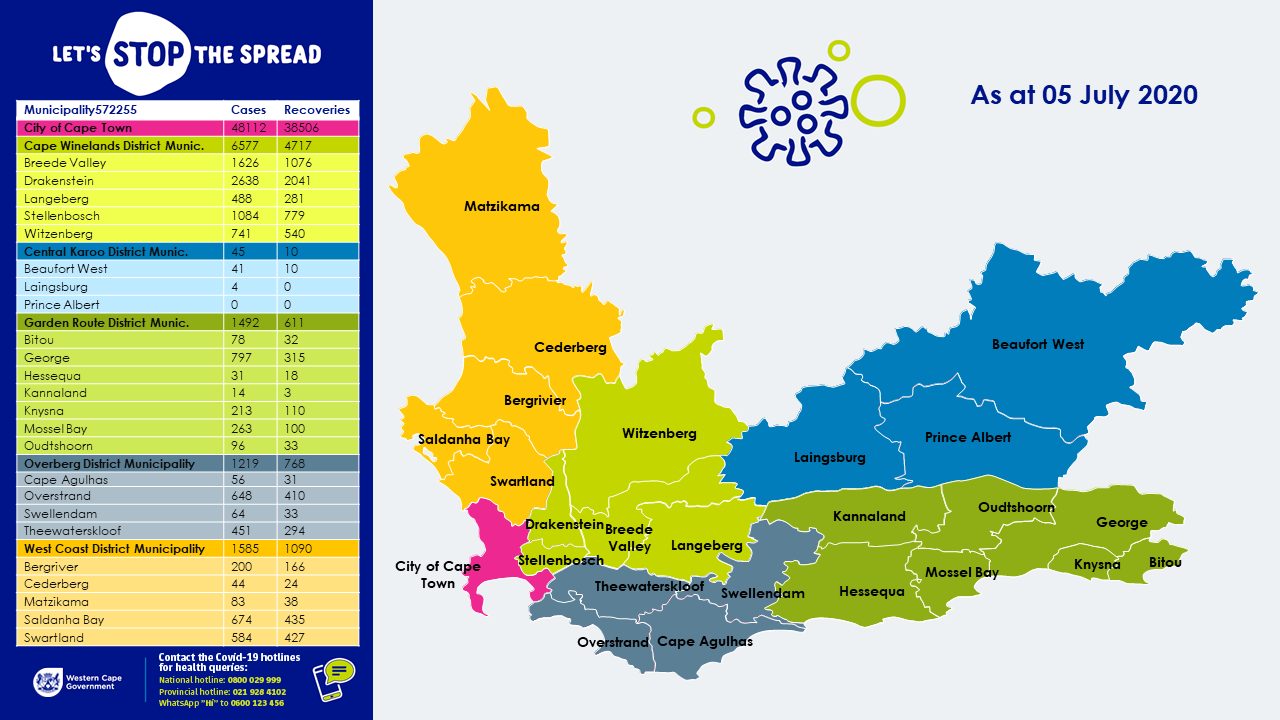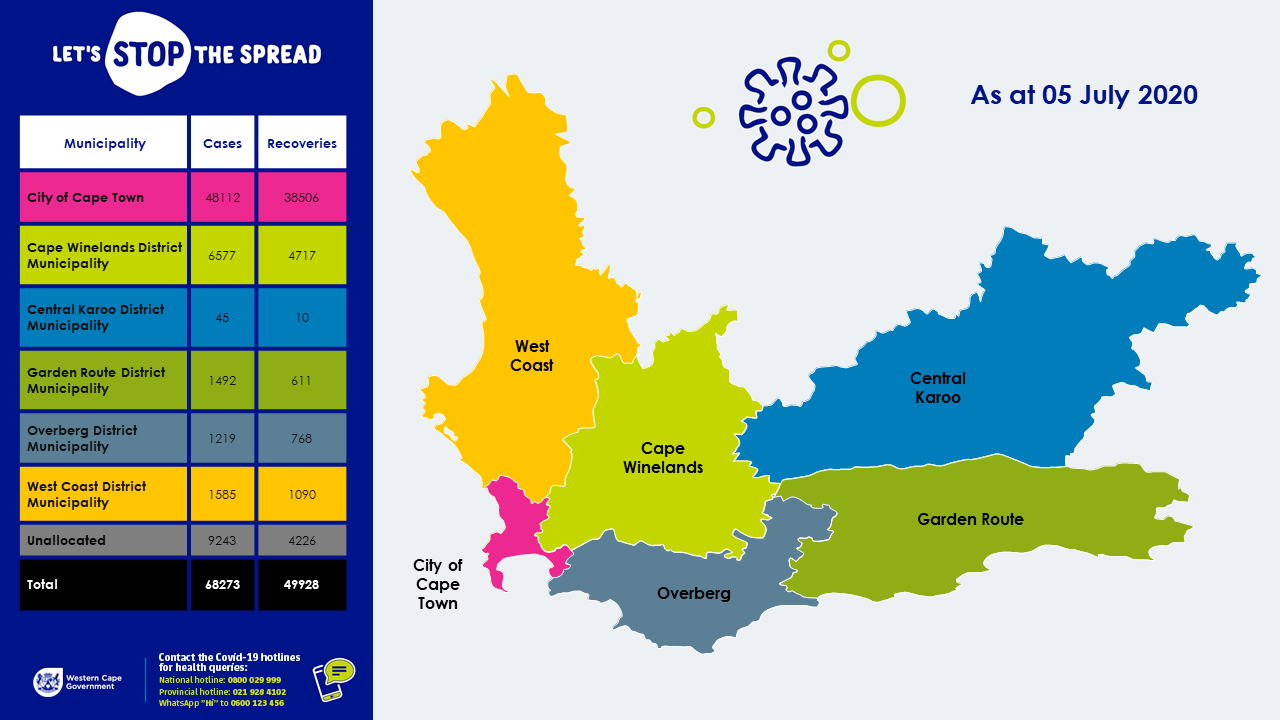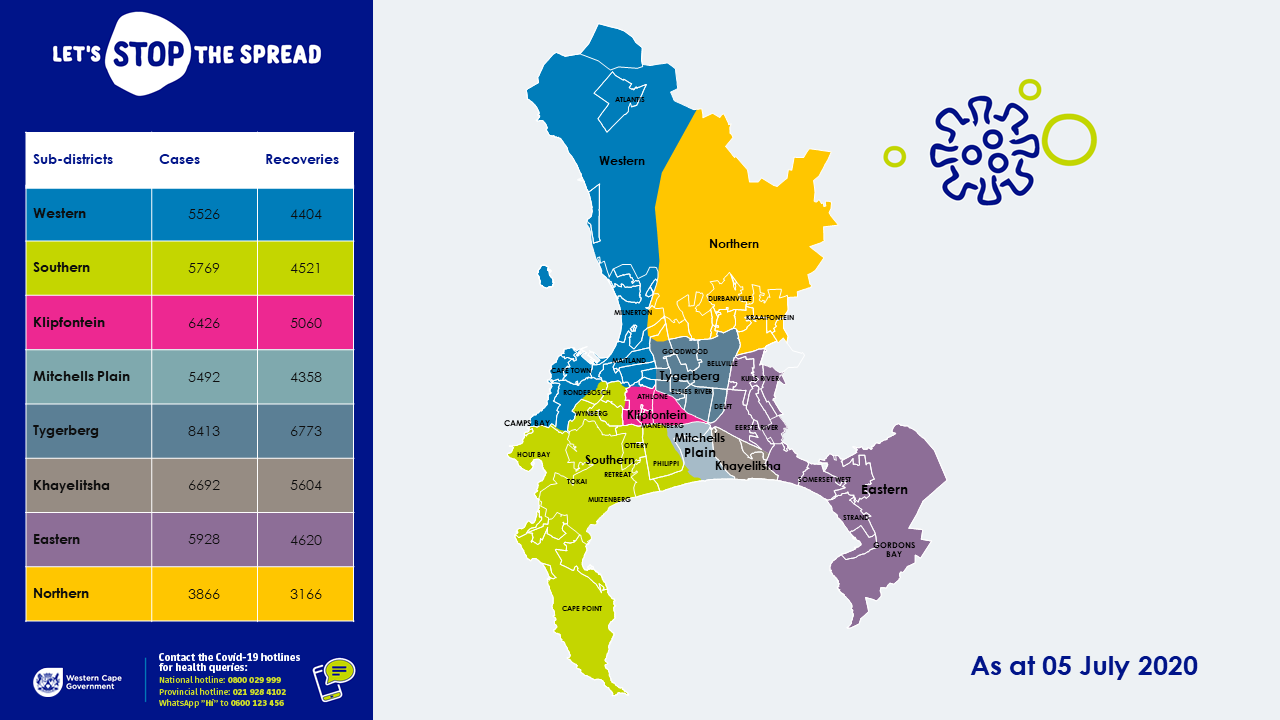WESTERN CAPE NEWS - 73% of those who have contracted COVID-19 in the Western Cape province, have recovered.
This according to Premier Alan Winde's latest statement.
Thus far, almost 50 000 people in the Western Cape have recovered from COVID-19.
"However, those who are over 55 years old, and those with underlying health conditions such as diabetes and hypertension, are more likely to become seriously ill, require hospitalisation or die, which is why we should all be doing our part to slow the spread of the virus and help to save lives," said Winde.
"Our data shows that almost half of all COVID-19 positive people in the province with diabetes have required hospitalisation, and of those hospitalised, 45% have died."
He added: "The province has worked hard to ensure that for those who do need to be hospitalised, adequate care is available."
These steps include:
- Reorganising how we deliver healthcare service and decongesting healthcare facilities and hospitals in order to focus on COVID-19 patients.
- Creating additional intermediate care hospital beds at the already functional CTICC Hospital of Hope, the MSF Thusong facility in Khayelitsha and at the Brackengate and Sonstraal facilities which will be opening soon.
- These beds have already allowed us to create space in our acute hospitals, by admitting patients from across the metro's acute hospitals and will play an important role in offering care during the peak.
- Finalised service level agreements with the private sector for critical care, with the first patients already referred to private hospitals.
- The province has implemented high flow nasal oxygen treatment, which allows us to deliver lifesaving care without the need for an ICU bed or a ventilator. 121 machines are currently available to deliver this treatment, with 43 more on order.
- We have introduced the protocols for the use of steroids, which international research has shown to have positive impacts on the mortality rates of patients who require oxygen or ventilation.
- We have introduced a special focus for COVID-19 positive patients with diabetes in order to further protect this vulnerable group.
What you can do to protect yourself and your loved ones
"We have worked hard to put measures in place to strengthen our healthcare systems but we cannot fight this pandemic alone. Your behaviour can impact how we are able to respond:
- Stay home as much as possible and avoid gatherings of people. The province has not yet reached its peak, and we still need to stay home as much as possible, especially if you fall into one of the high risk groups or have an elderly or at risk person living with you.
- Wash or sanitize your hands regularly, and clean and sanitize work spaces, and surfaces that you regularly come into contact with.
- Always wear your mask when you are outside of your home.
- Keep a distance of 1.5 metres between you and any other person, even if you are wearing a mask.
- If you feel ill, stay at home.
- If you experience symptoms, assume that you have COVID-19, and ensure that you quarantine yourself from other people living in your home.
- If you experience shortness of breath, seek immediate medical assistance.
- If you are not able to self-isolate or self-quarantine, call the Western Cape hotline on 021 928 4102 and you will be placed in one of our comfortable facilities to protect your loved ones.
"By protecting yourself, you are able to protect your loved ones. By staying safe, you are helping to save lives."
Infection update:
As of 13:00 on 5 July, the Western Cape has 16 293 active cases of COVID-19.
* Total confirmed COVID-19 cases - 68 273
* Total recoveries - 49 928
* Total deaths - 2 052
* Total active cases (currently infected patients) - 16 293
* Tests conducted - 32 3763
* Hospitalisations - 1 840 with 317 in ICU or high care
'We bring you the latest Garden Route, Karoo, Hessequa news'




















